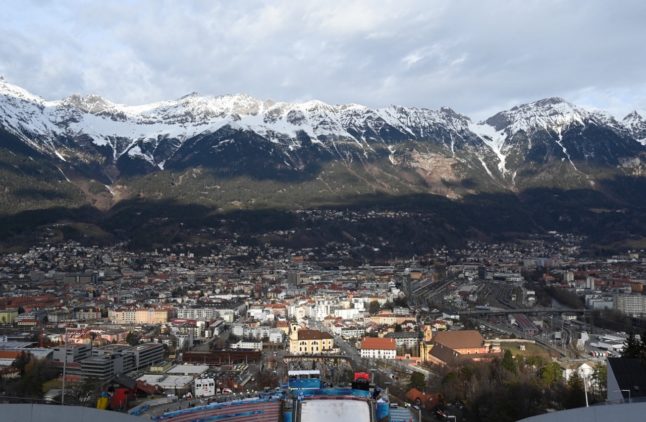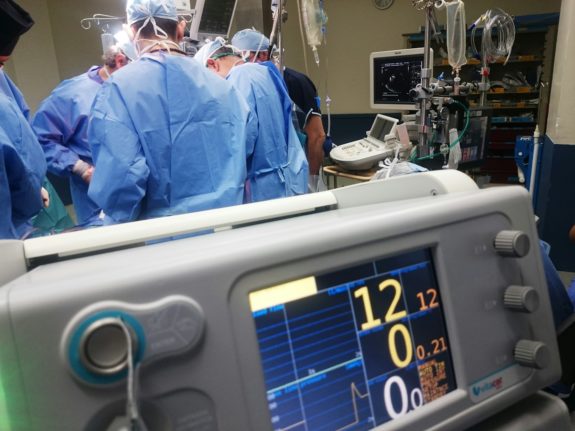Austria Jumps in Popularity for International Job Seekers
According to a new study, Austria has climbed the ranking as a destination for international job seekers.
A survey by Boston Consulting Group (BCG) and Stepstone job portal places Austria 11th globally out of 185 countries, a significant improvement from 15th in 2020.
This high quality of life and job opportunities attract global talent. However, the study highlights room for improvement in visa and work permit processes. “Austria’s advantage could be eroded by complicated immigration procedures,” says Heike Dorninger, head of BCG’s Vienna office. Businesses are encouraged to help navigate these bureaucratic hurdles.
While Vienna remains a desirable city, its ranking has slipped slightly to 23rd compared to 13th in 2018. This ranking is based on a survey of over 150,000 employees globally.
Can I get out of a rental contract in Austria?
Have you viewed an apartment in Vienna or elsewhere in Austria and hastily signed a contract? Don’t you like the apartment after all? These are your withdrawal rights in Austria.
Big Gaps in Full-Time Childcare Options Across Austria
A new report by Statistics Austria reveals a significant regional imbalance in Austria’s childcare system. While almost all 3—to 5-year-olds attend daycare, only half have access to facilities that allow parents to work full-time.
The “work-life balance indicator” (VIF) defines full-time childcare as facilities open at least 45 hours a week, weekdays with extended hours on four days, open at least 47 weeks a year, and providing lunch.
Vienna leads the pack with 91 percent of daycare options meeting the VIF criteria. However, other regions like Upper Austria (28 percent) and Lower Austria (26 percent) lag far behind.
The report shows minimal improvement compared to the previous year, with some states even experiencing a decrease in VIF-compliant facilities. This lack of full-time daycare options creates challenges for parents seeking to work full-time.
Melting Snow Disrupts Alpine Ecosystem Balance
A new study by the University of Innsbruck warns that rapid mountain warming is upsetting the delicate ecological balance in the Alps.
The research focused on the impact of reduced snow cover at high altitudes (around 2,500 meters) in the Ötztal valley. The findings suggest a disruption in the natural cycle of nutrient exchange between plants and soil microbes.
Snow acts as insulation in the alpine ecosystem, allowing microbes to remain active throughout winter and store nutrients vital for spring plant growth. With less snow, this cycle is disrupted.
“A loss of snow cover of up to 80-90 percent in parts of the European Alps by the end of the century” is predicted by the study’s authors, Dr Michael Bahn and Dr Richard Bardgett. They fear this will lead to “a serious disruption to the ecosystem with potentially long-term consequences for material cycles and biodiversity.”
The study also observes the spread of dwarf shrubs like heather at higher altitudes. This, combined with insufficient snow cover, further disrupts the delicate interaction between plants and soil microorganisms.
The research, published in Global Change Biology, highlights the potential for a decline in the Alps’ ability to store nutrients crucial for plant life.
Nicole Kidman Films Secret Project in Salzburg
Hollywood buzz surrounds Salzburg as a major international production, rumoured to be the second season of “Nine Perfect Strangers,” films in the city. Oscar-winner Nicole Kidman is reportedly among the stars.
Filming is shrouded in secrecy, with tight security and a guarded compound of trailers and vehicles occupying the outdoor pool parking lot at Leopoldskron Palace. Local authorities have confirmed a production received film funding but would not disclose details due to a confidentiality agreement.
Rumours suggest Kidman is staying at the luxurious Hotel Sacher and filming at Leopoldskron Palace, Golling, and Werfen until May. Fans hoping for a glimpse of the star will have to be patient, as filming locations are heavily guarded.
Food Prices Remain High in Austria
The cost of everyday staples like flour, potatoes, and sunflower oil has soared in Austria in recent years, as Der Standard reported. While the rate of increase has slowed slightly, experts predict grocery bills will stay high due to factors like the war in Ukraine and climate change.
This price surge raises concerns, particularly for low-income earners. However, the report added, pinpointing the exact cause is difficult due to a lack of transparency in the food supply chain.
A new Vienna Institute of Economic Research (WIFO) study highlights this issue. Authored by Franz Sinabell and Anna Renhart, the study reveals a significant knowledge gap about price breakdowns at various stages of food production.
The study states, “There are only a limited number of data sources in Austria to track prices.” This lack of data makes it difficult to determine if high prices are due to rising raw material costs or profiteering by farmers, processors, or supermarkets.
The Austrian Trade Union Federation (ÖGB) and the Chamber of Labor (AK) have long advocated for a price database to improve transparency.
The Wifo study offers a glimpse into the price breakdown for a kilo of flour. While the end customer pays €1.58, only €0.28 (around 18 percent) goes to the farmer who grew the wheat. The mill receives €0.46 (nearly 30 percent), the supermarket gets €0.70 (over 44 percent), and VAT takes €0.14.
However, crucial information is missing: the costs incurred by each player in the chain. We don’t know how much farmers spend on fertiliser or seeds or how much profit processors and supermarkets make.
The study proposes a more comprehensive price monitoring system, requiring food processors and retailers to report purchase prices. This data and existing information from farmers would provide a clearer picture of where price increases originate.
April in Austria: Wild Ride from Heatwave to Snow
After a scorching start to the month, Austria has plunged into a surprising cold snap, with snow falling even in some lowland areas. This dramatic shift comes after record-breaking high temperatures in early April.
Despite the current chill, the overall temperature for April is still expected to be warmer than average. Meteorologists attribute this to the extremely warm early days. “Even the strong cold snap can’t compensate for it,” says Alexander Orlik of Geosphere Austria.
While unusual, cold spells in the second half of April aren’t unheard of, happening roughly every three to four years. Orlik said that natural temperature fluctuations have always existed, but the overall level is trending upwards.
This year’s stark contrast, however, raises concerns for agriculture. Frequent occurrences of such dramatic shifts could disrupt plant and animal life cycles.
If you have any questions about life in Austria, ideas for articles, or news tips for The Local, you can contact us at news@thelocal.at or leave a comment below.



 Please whitelist us to continue reading.
Please whitelist us to continue reading.
Member comments